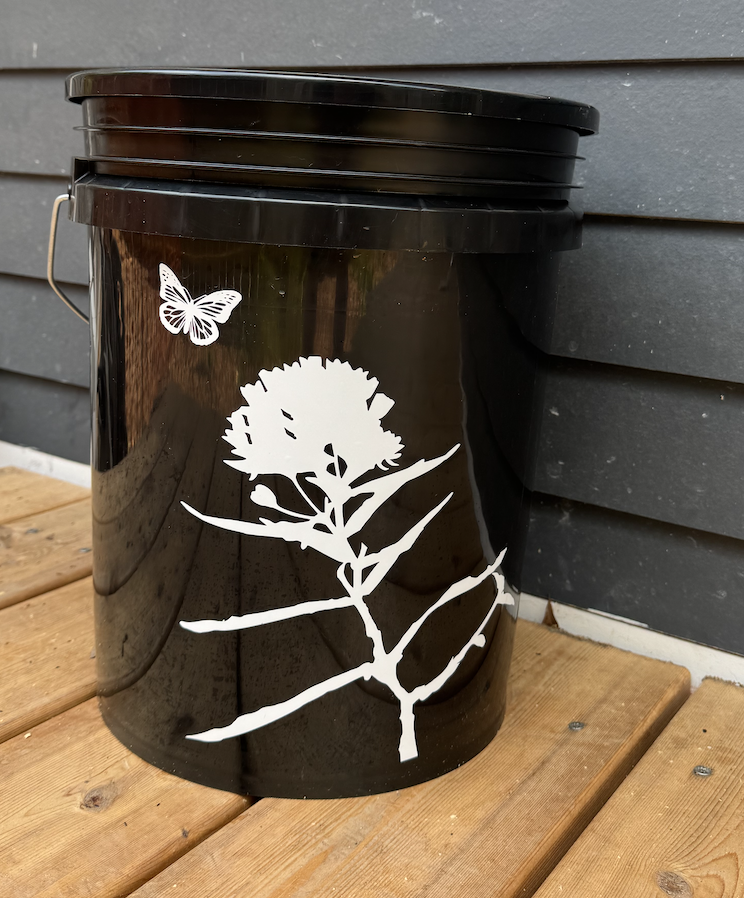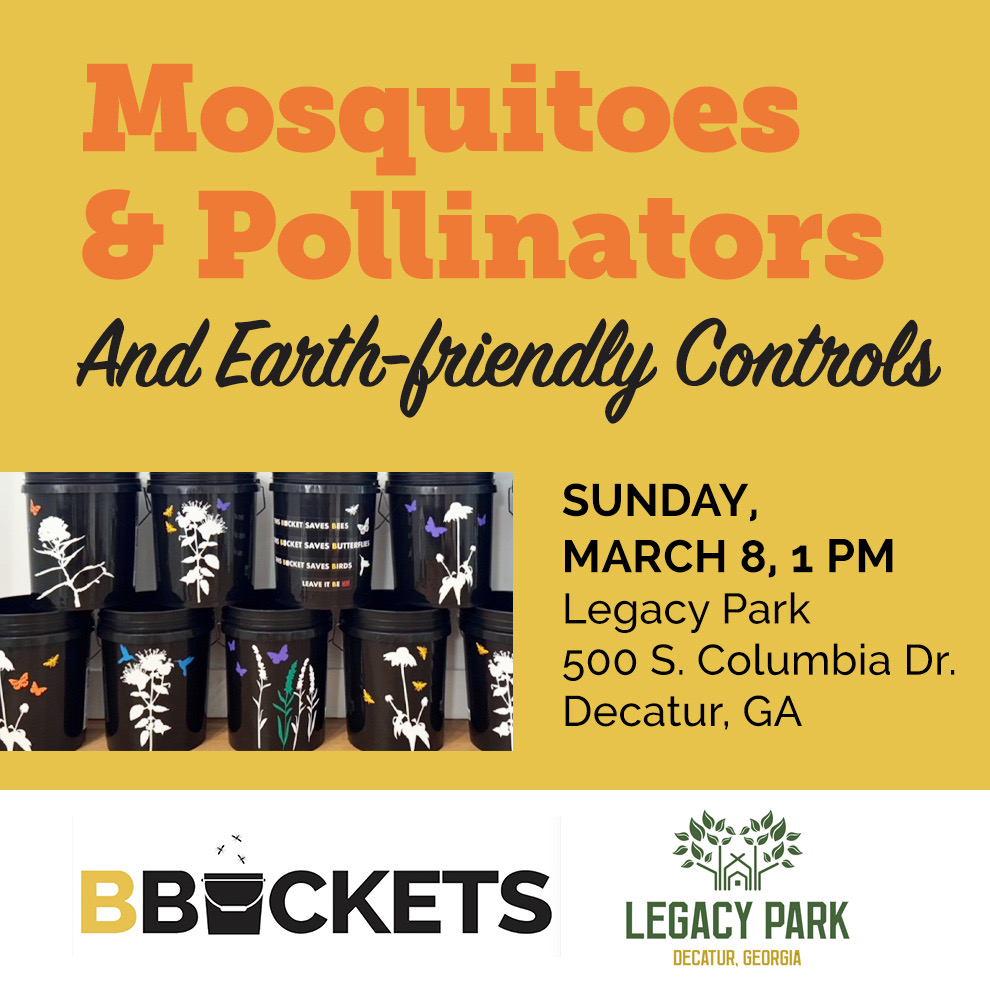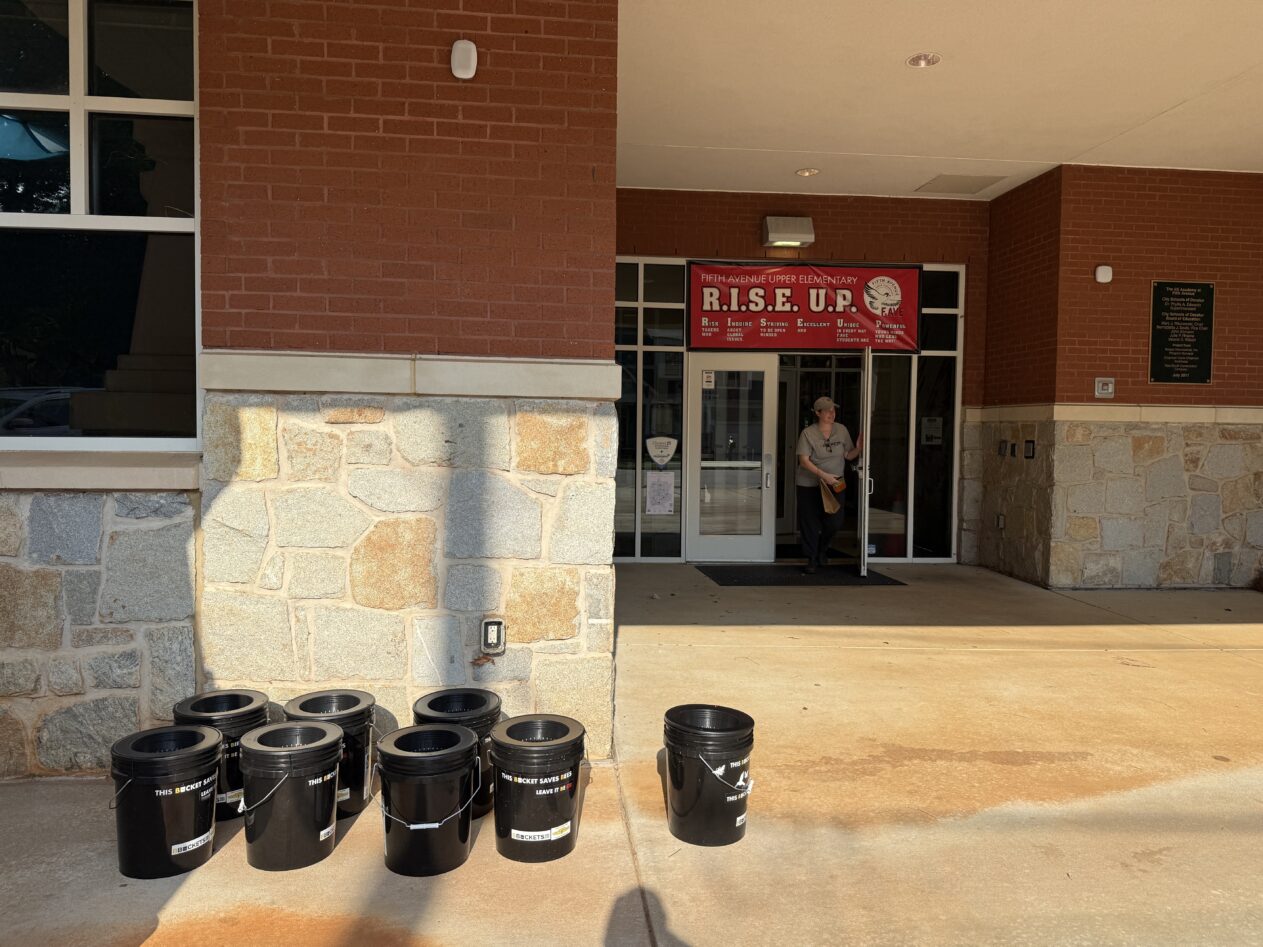
On Tuesday, August 19–just in time for World Mosquito Day and the beginning of our academic year–Nell and I installed mosquito buckets at Fifth Avenue Upper Elementary in the City Schools of Decatur, part of a pilot project we are doing in collaboration with Intown Ace Hardware. This is the second school in the system to have buckets. Andy at Intown Ace and I have both placed buckets at schools where we are parents; principal and parents at the first school, where buckets were added to the playground in June, report that they have made a big difference, even this year with all the heat and all the rain in Georgia. We are thrilled to be offering this pilot to protect our kids from mosquito bites, better for their general health, of course, and also their focus during the school day. We hope to add buckets to more schools in the system.
If you are thinking that this is not the best time of year for bucket installation, you are right. There is evidence that the efficacy of such systems improves if the system start the year in place, which is our goal for spring 2026. This fall, we think, we can learn a lot from where they are placed on school grounds, which is always a bit of trial-and-error as you get to know the intricacies and nuances of particular properties.
And this is a culture shift that we are leading, together, we think. It is my experience that Georgia residents who do not otherwise engage mosquito abatement companies or spray their yards sometimes choose to do so in August and September because the mosquito activity is still high (especially now) from the summer of heat and rain, and we are all a bit weary of having plans compromised by their persistence; and now concerns about mosquito-borne illnesses (like West Nile, which arrived in the Atlanta-area in July) are real.
It is brave and bold to choose buckets; they are not the easy choice. There is much more chatter about chemical solutions, often presented as safer and less toxic than we think they are (always ask for Safety Data Sheets). They are not a quick fix; it seems that spraying makes people feel like they are resolving the challenge quickly, even if that’s not the case, as we explain on other pages on this website. Buckets, especially with Bti (if you are looking into buckets, again ask for Safety Data – all the ones we know of from companies in our area use a chemical larvicide; we’ve asked everyone we know of who advertises “non-toxic” buckets and ours are the only ones), are a longterm, effective, and safe solution, using scientific methods and knowledge and creative and critical thinking and, in our case, visual messaging, in text and image. For me, as educator and parent, this bucket project involves what I want to model and to teach: observation, reflection, patience, persistence, flexibility, risk, communication, at least.
As those of us at B Buckets keep saying, Bti buckets are better for our pollinators, our people, our pets, and our planet. And we are always happy to explain that perspective, which comes from years of curiosities, conversations, reading, and, full disclosure, mom intuition and insistence.
Thank you to Mr. Adams, Mr. Thomas, Ms. Jackson and the staff of FAve who have talked about and helped with installation — and have been willing to enter this partnership, a teaching and learning opportunity for us all!
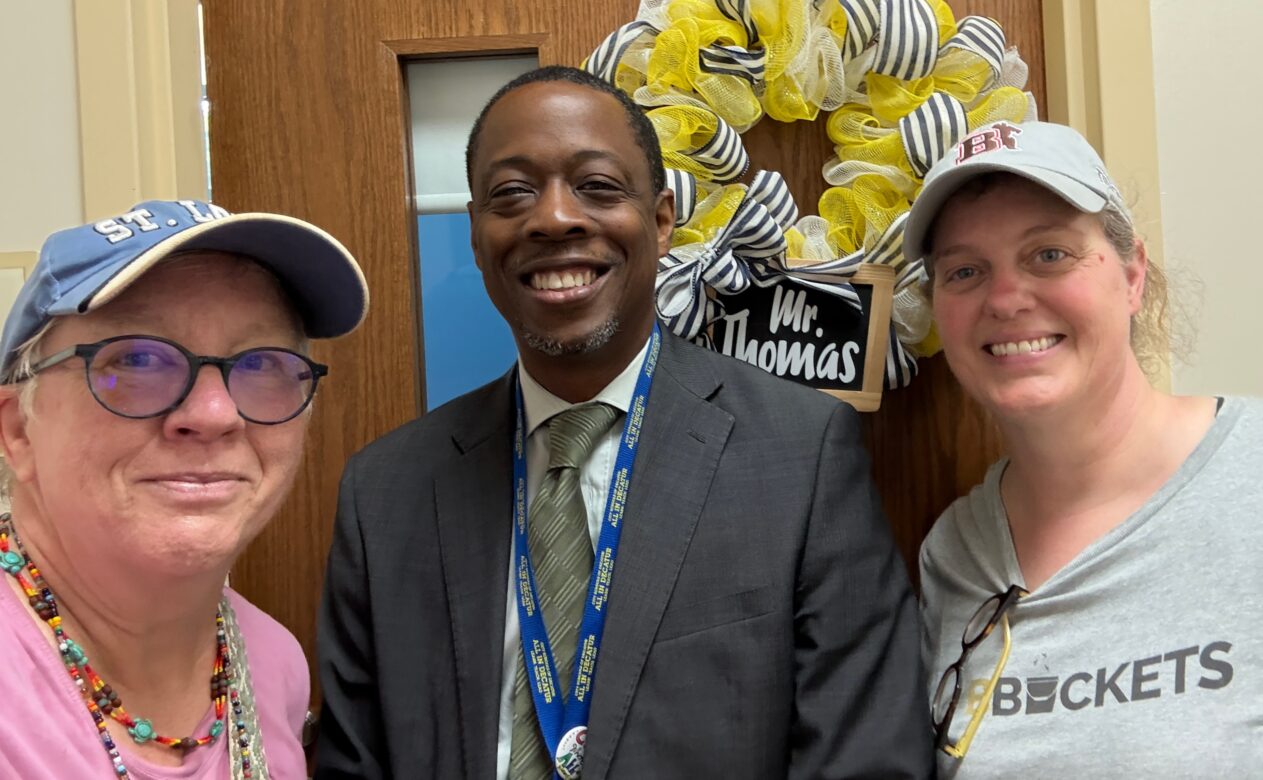
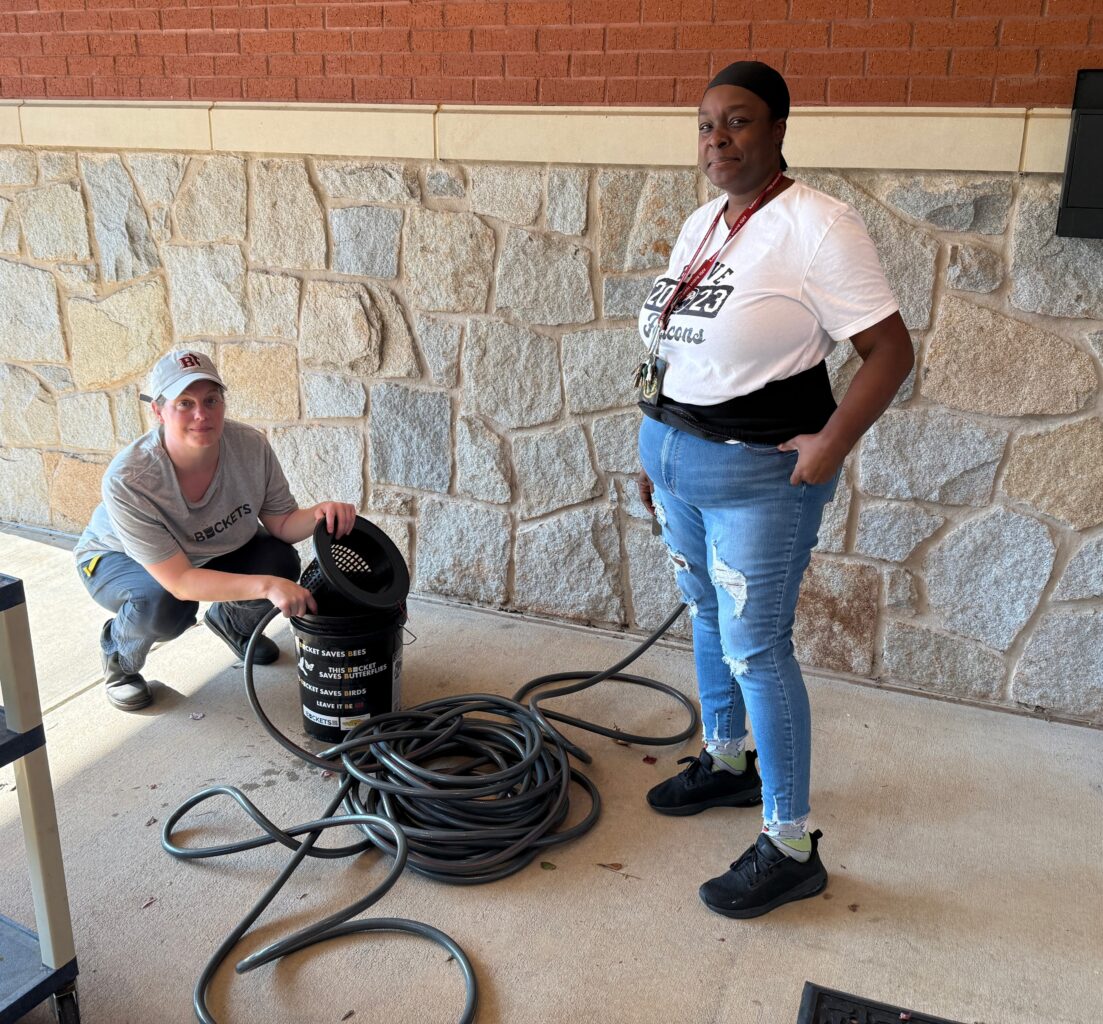
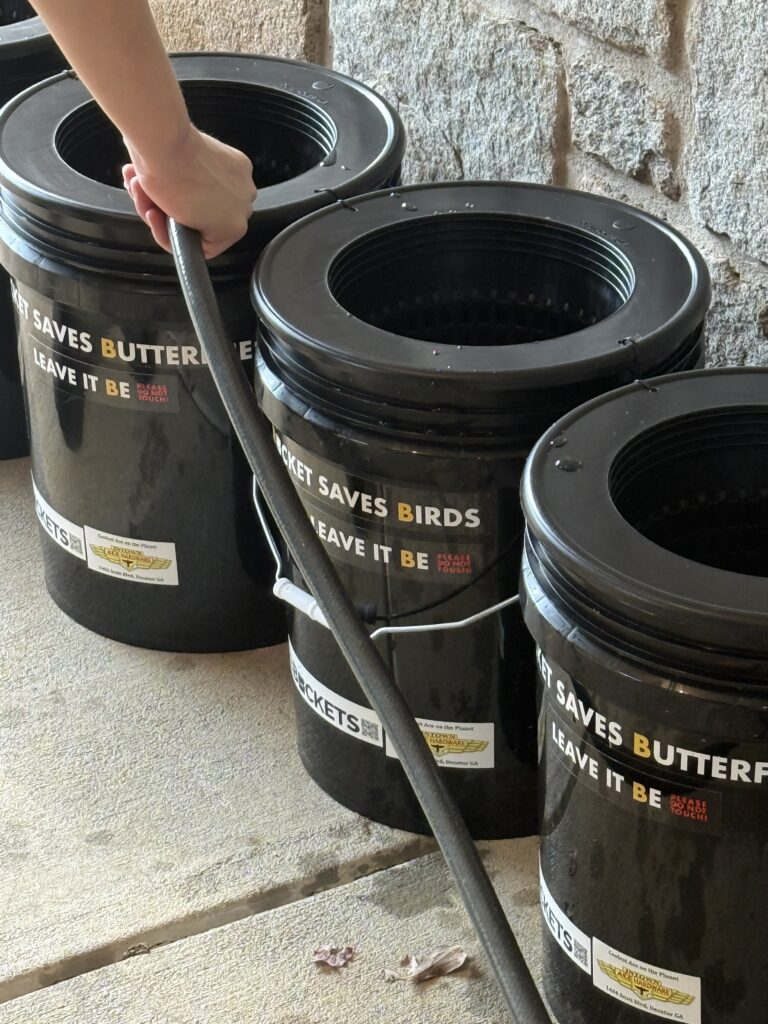
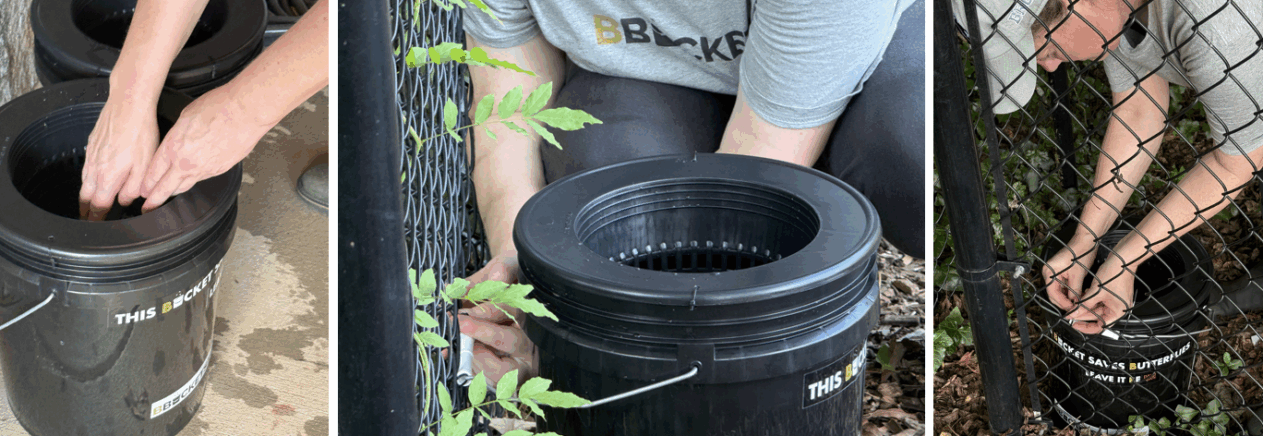
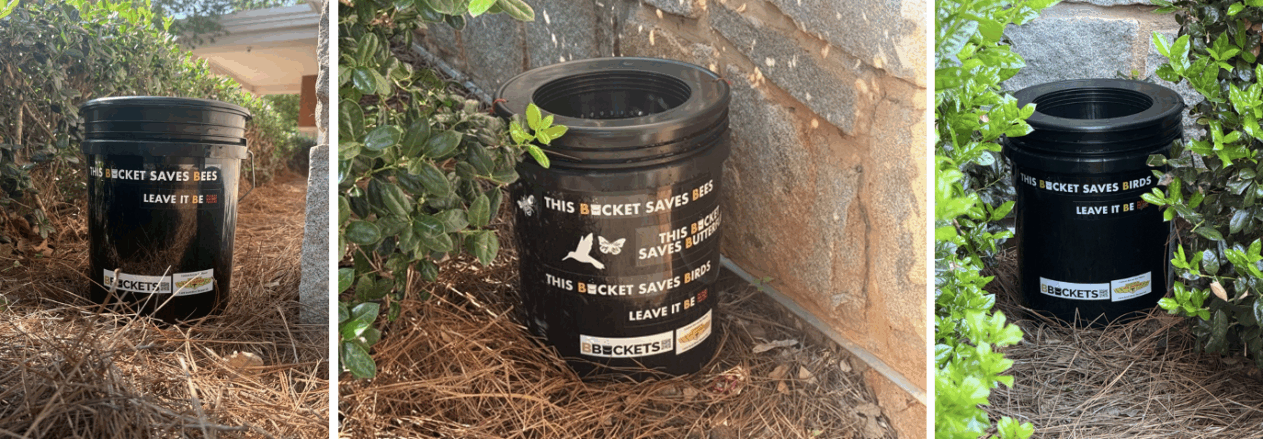
all photographs by Nell Ruby


